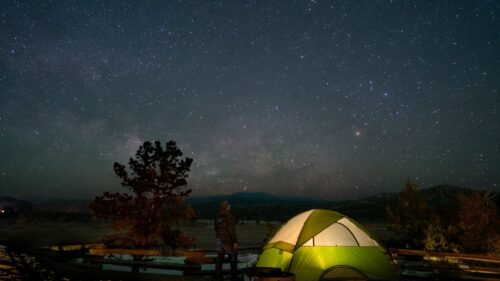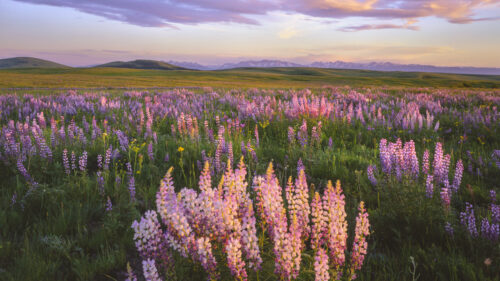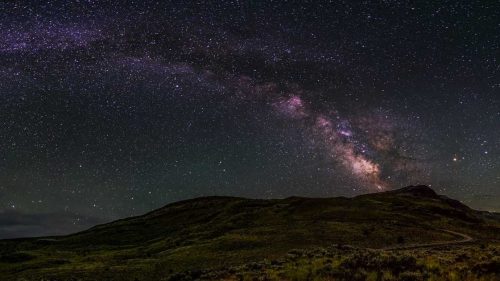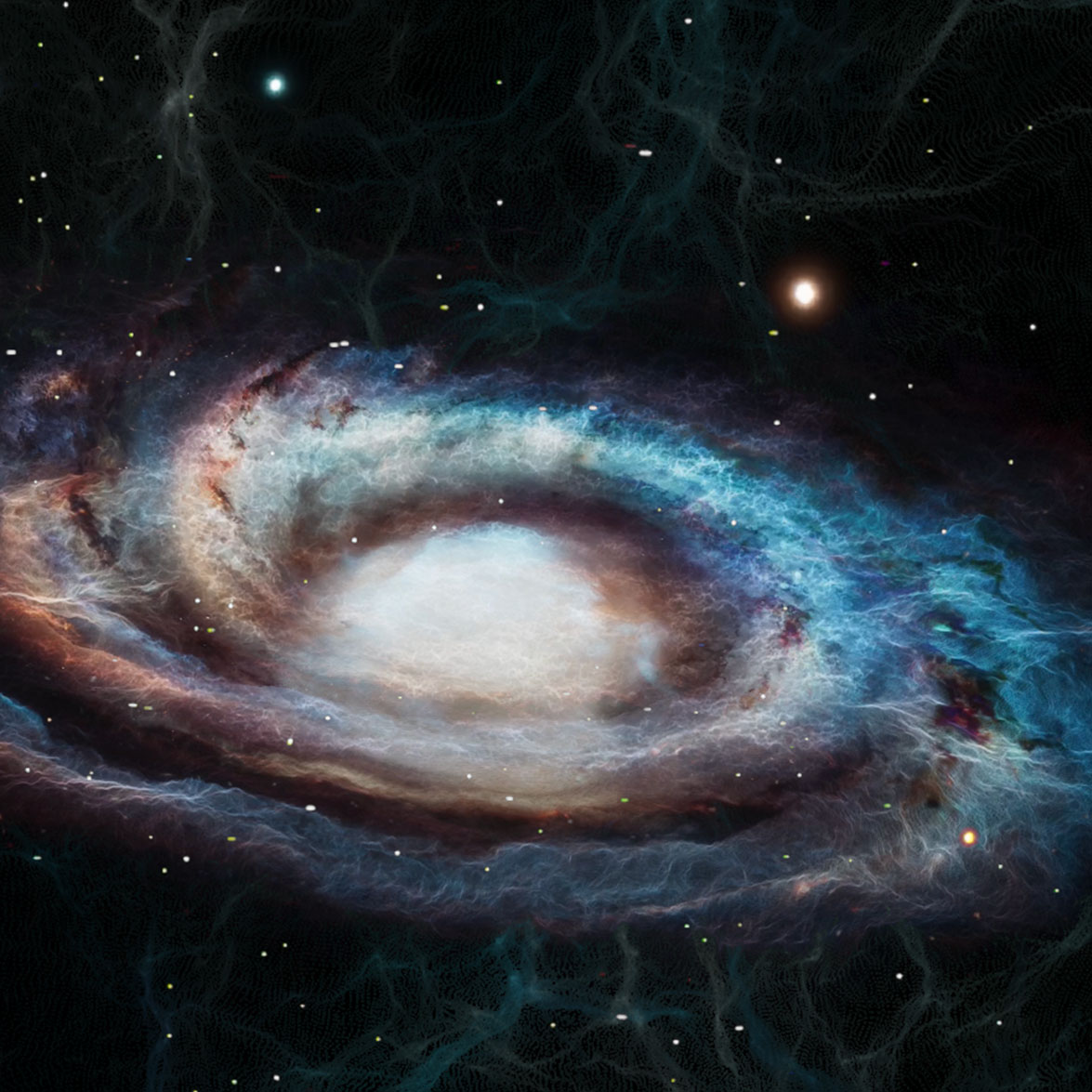Nature rules the areas around Prineville in Central Oregon, with plenty of options during the day for hiking, biking, fishing and paddling. But it’s what hangs overhead that will have you in awe at night: a sky packed full of stars with little manufactured light.
Prineville Reservoir State Park — about a 50-mile drive northeast of Bend — became Oregon’s first state park to earn certification as an International Dark Sky Park in May 2021. It joined Sunriver as the only other “International Dark Sky Place” in Oregon and is now one of fewer than 200 such places around the world. The designation also recognizes the park for its work to educate and reduce light pollution with special bulbs that prevent skyglow.
While you could simply reserve one of the park’s RV sites, tent-camping sites or even a cabin, and gaze skyward with an app like SkySafari or Star Walk to guide you around the nebulas, this summer rangers at the 291-acre park will be offering dark-sky programs. These educational talks go deep into the benefits of a light-free night for animals and people, as well as the mysteries of space.
“You don’t need much,” says George Faria, a park ranger. “Just show up and hang out, and we’ll take care of the rest.”
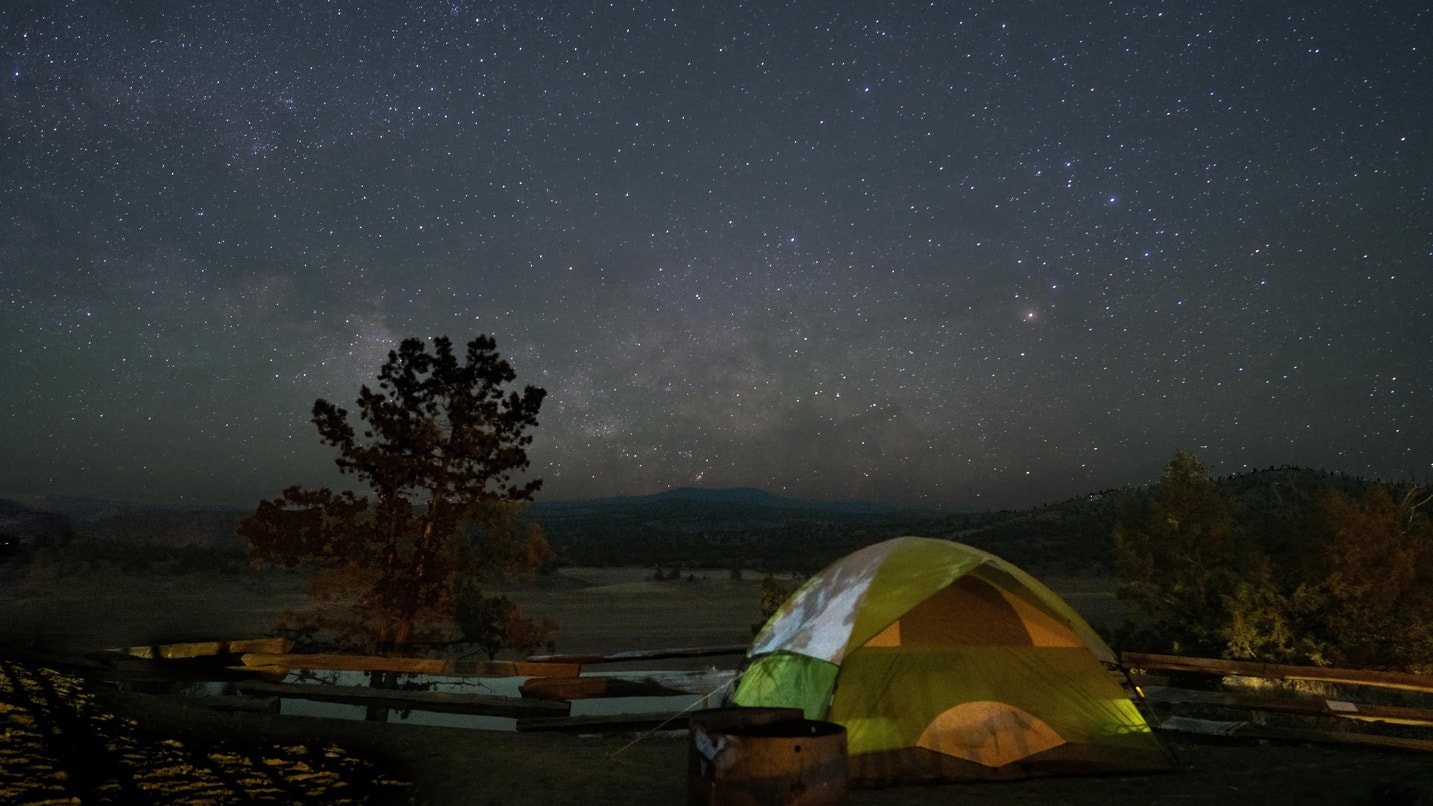
Dark-Sky Fun at Prineville State Park
The park’s programs are free and run from Memorial Day to Labor Day on Friday, Saturday and Sunday nights, starting after it gets dark, around 9:30 p.m. or so. Each session lasts about an hour to 90 minutes.
Programs vary from lectures in the park’s amphitheater about space and nocturnal creatures to stories about the constellations. Rangers will use lasers to point out the lights of Orion’s Belt or the three stars of the Summer Triangle. Other activities might include taking a peek through “Big Doug,” a 16-inch-diameter telescope, to look at the moon’s craters or even some of Jupiter’s moons. Guest speakers from places like the Sunriver Nature Center & Observatory and the Sisters Astronomy Club will come throughout the season to offer talks on their expertise. For the kids, there will be free guided art projects like painting their own constellations or building a model nest for night-loving owls.
For those seeking a communal experience, pack your camping gear for a few nights of gazing, lectures and rocket building during the Oregon Star Party July 18-23 at Indian Trail Spring.
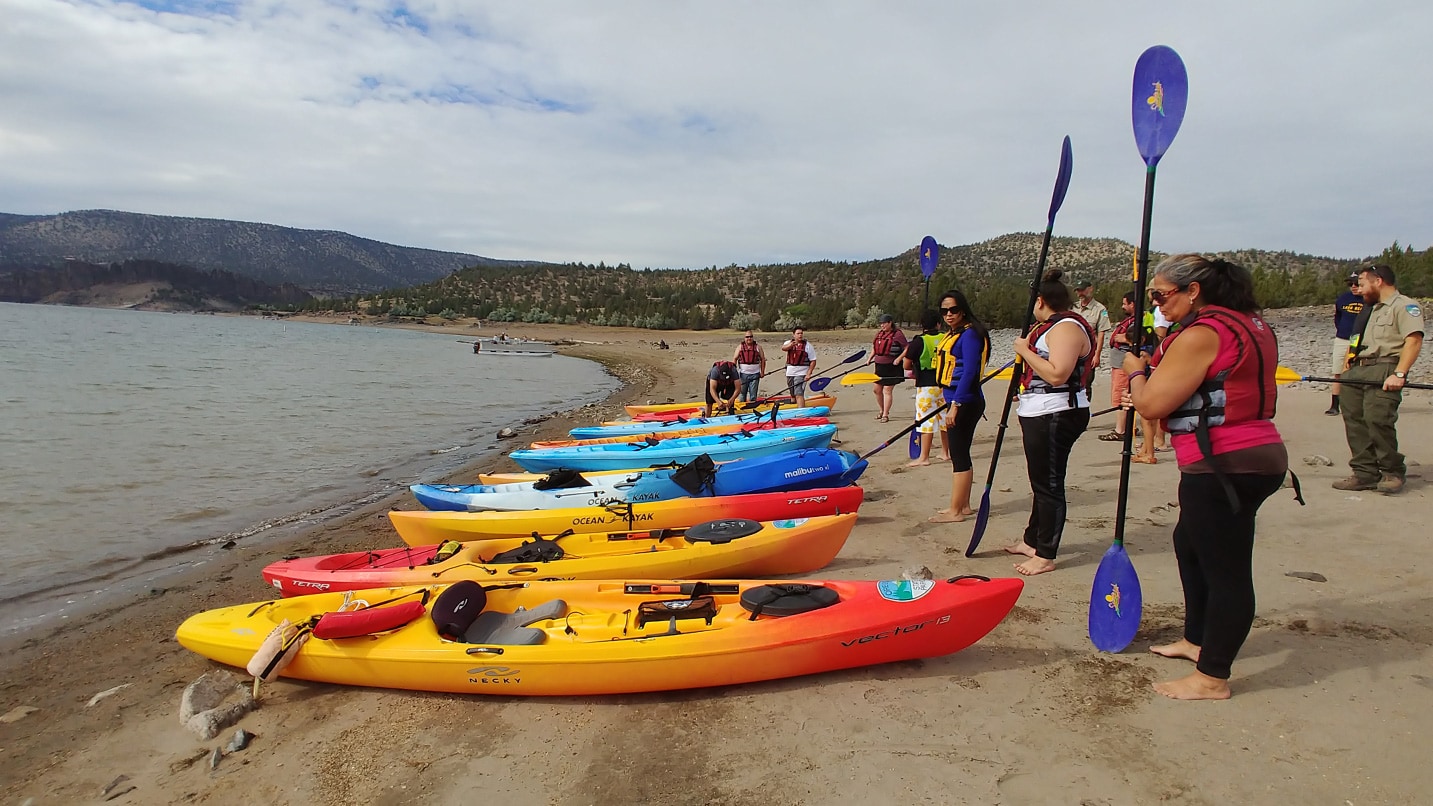
Ways to Spend the Day Near Prineville
You don’t need to wait for the sun to set to have some fun out here. The park also offers free daytime programs that include kayaking on the 15-mile-long Prineville Reservoir to learn firsthand about local geology, the area’s rich history, and the plants and animals that call the high desert home. The tours last about three hours and include a kayak, a paddle and a life vest. Children must be at least 8 years old to participate. Check the park’s event page (remember to filter results by park) for updates on this and more programming and activities.
A few trails wander along the reservoir, too. One leads along the northern shore from the main campground area to Jasper Point about 3 miles east. The Owl Creek Trail continues on from Jasper Point for 6 miles along a gated, unimproved road. Leaving the park, the Chimney Rock Trail climbs above the Crooked River — the river that feeds the reservoir — and zigzags up through basalt cliffs to the top of a canyon rim about 1.3 miles away. Bring a fishing rod; the reservoir and the river offer excellent angling.
After a day of outdoor fun, check out some of Prineville’s great restaurants, including Dillon’s Grill for burgers and barbecue or steaks and huge salads at a fine-dining tradition, Club Pioneer, open in 1942. Both have excellent happy hours. For a pint and fresh breeze, Redmond’s Wild Ride Brewing opened its second taproom in Prineville in 2022; the family-friendly patio is ringed by food carts offering tacos, pizza, burgers and fish and chips platters.
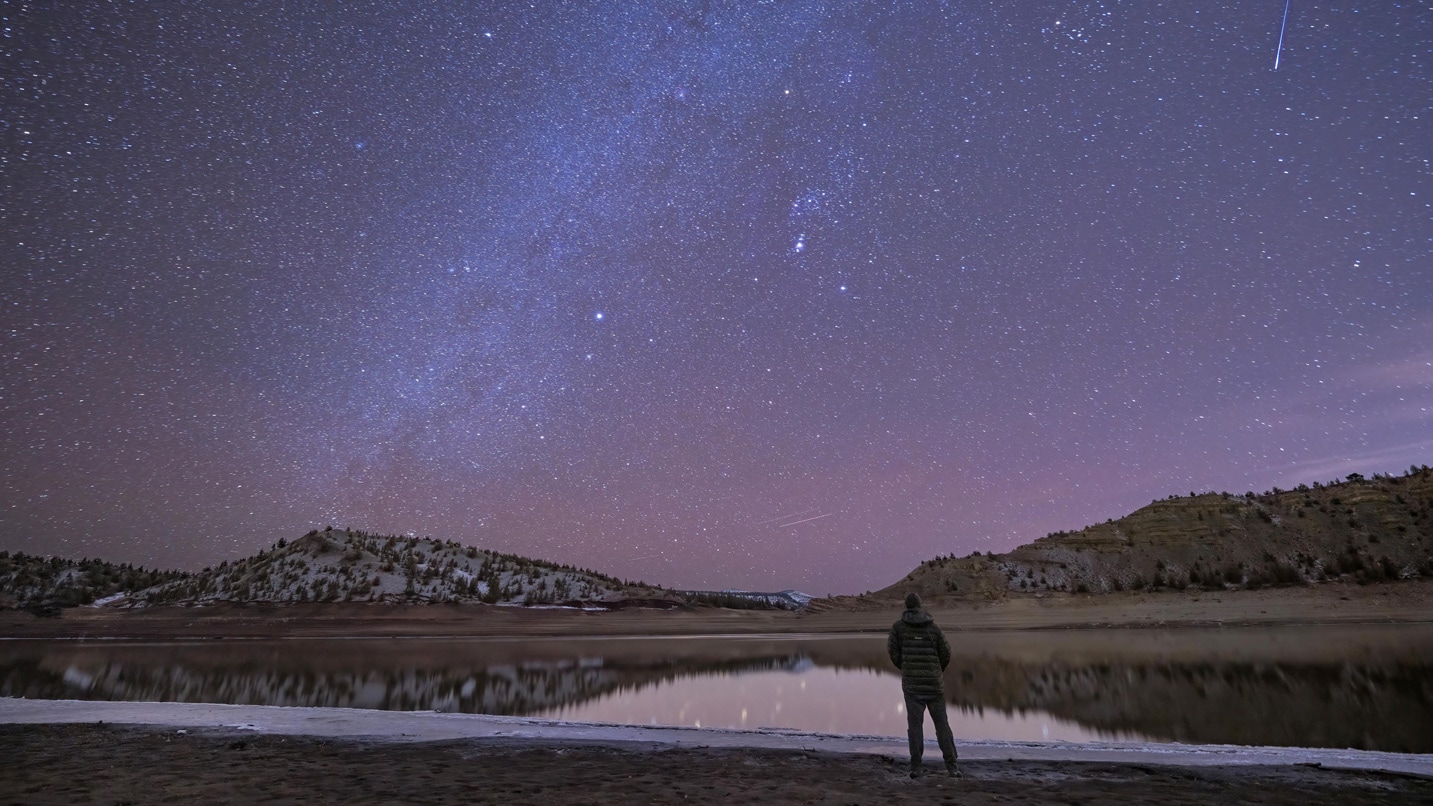
If You Go:
- Wherever you go to enjoy the stars, we encourage you to follow a few tips for the best experience.
- If you’re looking for clear skies, check the forecast to avoid heavy cloud cover.
- Be prepared as you travel to remote areas like the Oregon Outback, where cell service and gas stations are limited.
- You may want to bring a camera and tripod, telescope and a paper map along with your Ten Essentials and download an app for stargazing. Many flashlights and headlamps have a red-light setting that will let you see at night but won’t disturb wildlife or other stargazers.
- Support and be respectful of nearby small communities as you travel, and always be sure to pack everything out.
